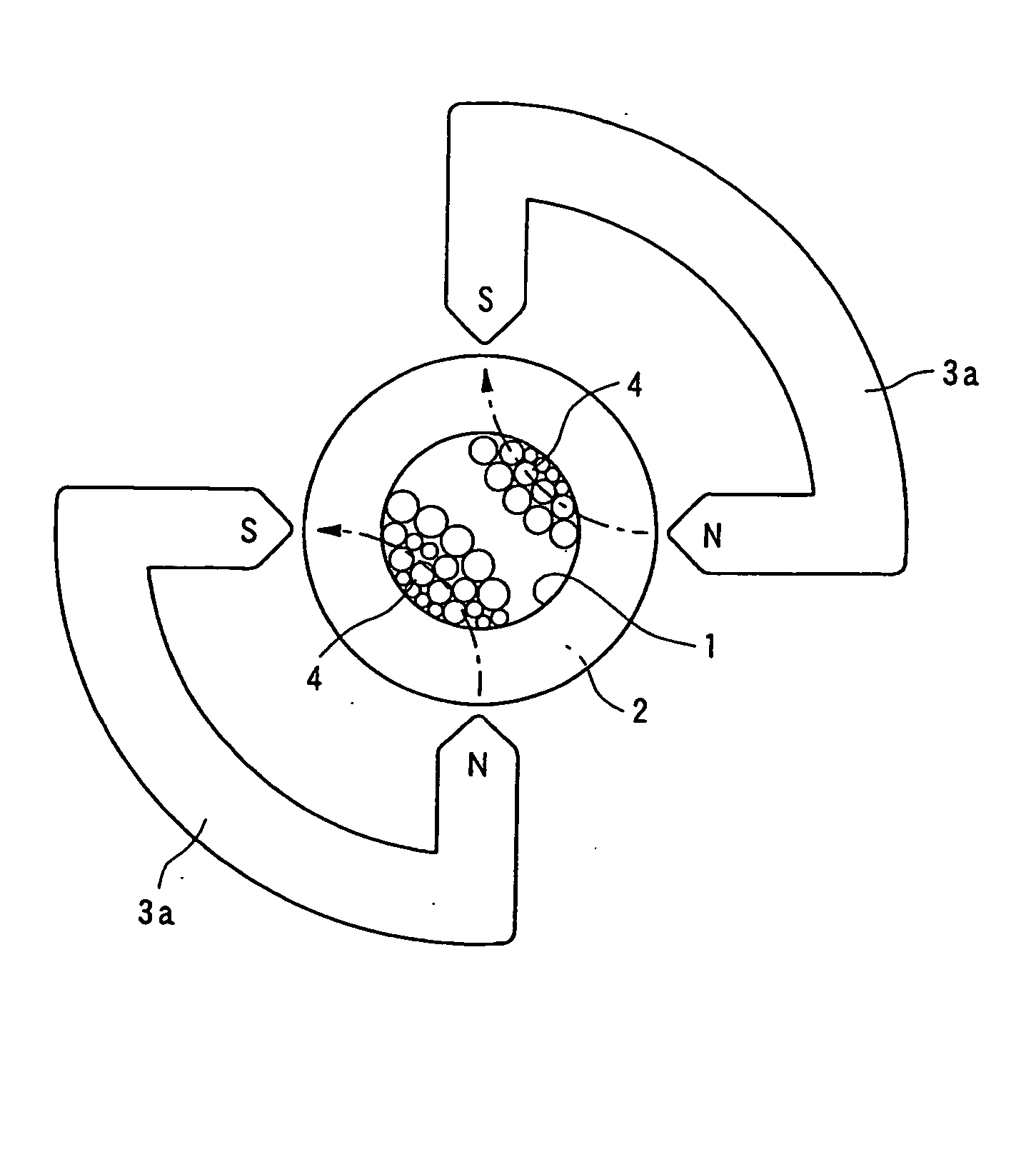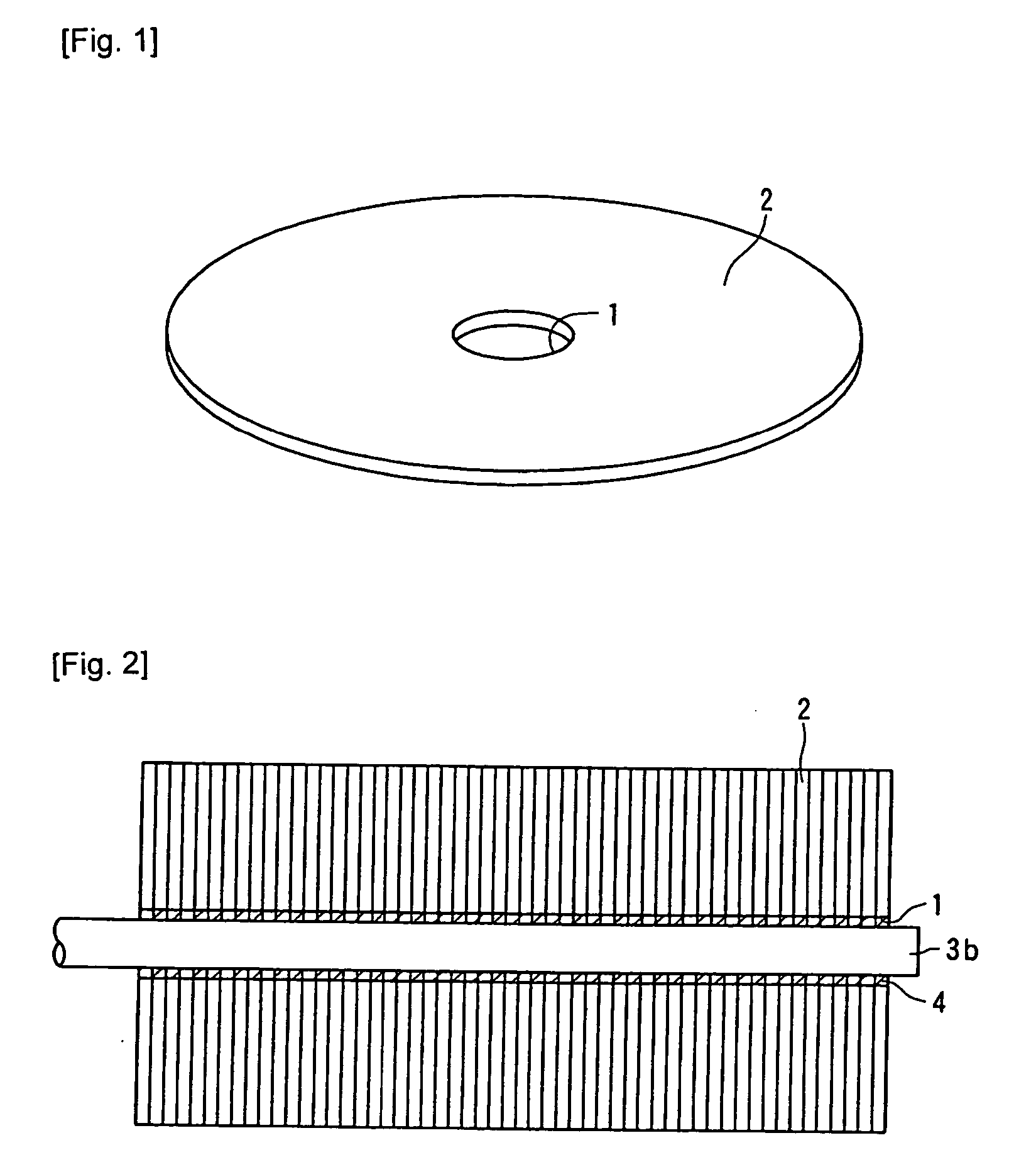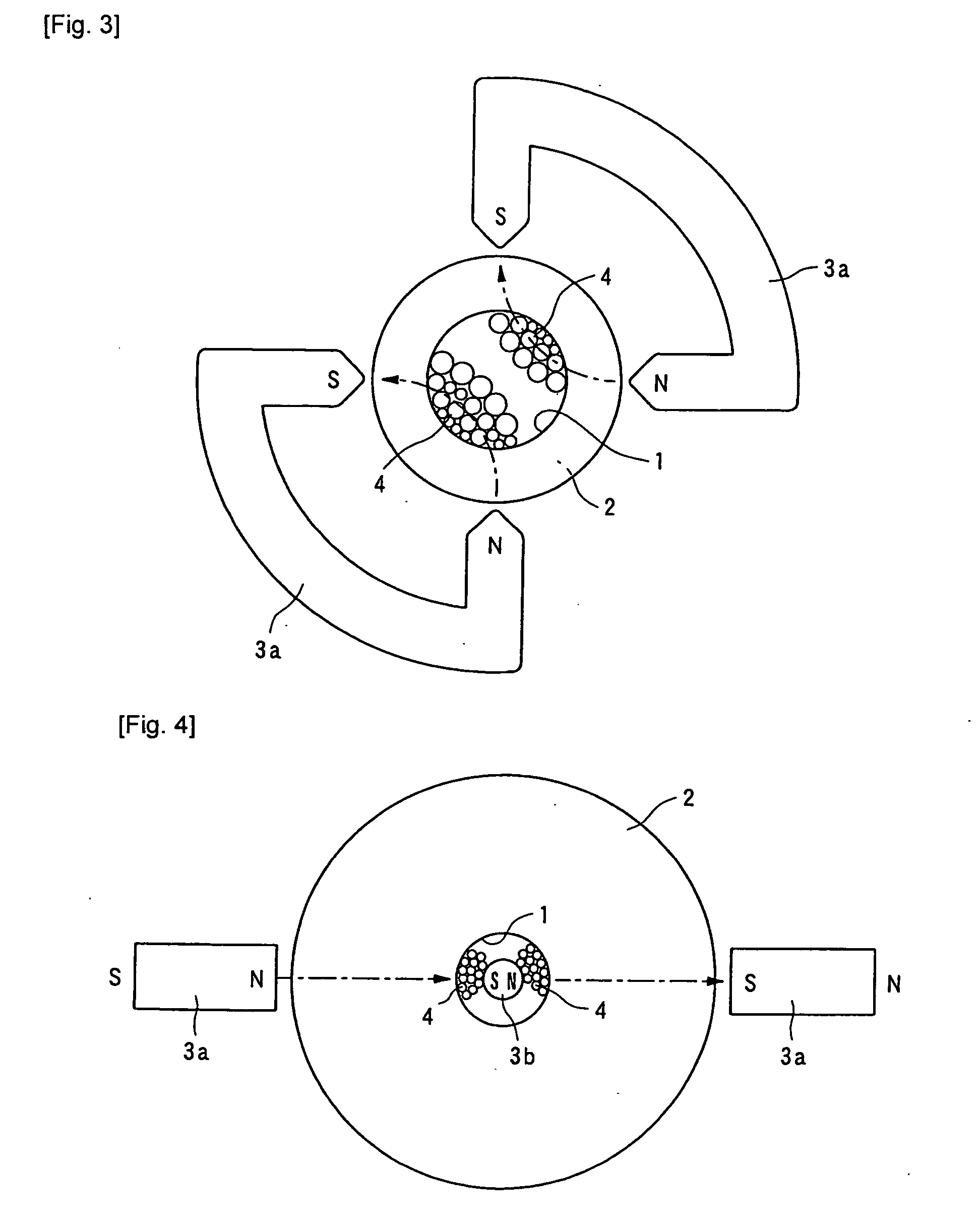Method and device for manufacturing substrate for magnetic disk, and method of manufacturing magnetic disk
a technology of magnetic disk and substrate, which is applied in the manufacture of grinding machine components, base layer manufacturing, manufacturing tools, etc., can solve the problems of malfunction in reproduction, contact of magnetic head, and inability to obtain the proper flying height of the magnetic head, etc., and achieves efficient and satisfactorily polished, efficiently polished, and efficiently polished
- Summary
- Abstract
- Description
- Claims
- Application Information
AI Technical Summary
Benefits of technology
Problems solved by technology
Method used
Image
Examples
example 1
[0159] Hereinbelow, examples of this invention will be described in detail.
[0160] In this example 1, substrates for magnetic disks were manufactured through the following processes.
[0161] (1) Shaping Process, Lapping Process Molten aluminosilicate glass was formed into a disk shape by pressing to thereby obtain glass disks.
[0162] As the aluminosilicate glass, use was made of glass for chemical strengthening containing, as main components, 57 to 74 mol % of SiO2, 0 to 2.8 mol % of ZrO2, 3 to 15 mol % of Al2O3, 7 to 16 mol % of LiO2, and 4 to 14 mol % of Na2O.
[0163] Subsequently, lapping was applied to the main surfaces of the obtained glass disk substrates. In the lapping process, the lapping was carried out by the use of a double-side lapping machine and alumina abrasive particles to thereby achieve predetermined dimensional accuracy and shape accuracy of the glass substrates. Then, grinding was performed using a grindstone to thereby form a circular hole at a center portion of ...
example 2
[0180] In this example 2, magnetic disks were manufactured through the following processes.
[0181] On each of both main surfaces of each of the glass substrates for the magnetic disks obtained as described above, an Al—Ru alloy first underlayer, a Cr—Mo alloy second underlayer, a Co—Cr—Pt—B alloy magnetic layer, and a hydrogenated carbon protection layer were formed in turn by the use of a stationary opposing-type DC magnetron sputtering apparatus. Then, an alcohol-denatured perfluoropolyether lubricating layer was formed by the dip method. In this manner, the magnetic disks were obtained.
[0182] With respect to the obtained magnetic disks, it was confirmed that there was no occurrence of defect on the films such as the magnetic layers due to foreign matter. A glide test was performed and there was observed no hit (a head grazes a projection on the surface of a magnetic disk) or crash (a head collides with a projection on the surface of a magnetic disk). Further, a reproduction test...
PUM
| Property | Measurement | Unit |
|---|---|---|
| particle size | aaaaa | aaaaa |
| length | aaaaa | aaaaa |
| diameter | aaaaa | aaaaa |
Abstract
Description
Claims
Application Information
 Login to View More
Login to View More - R&D
- Intellectual Property
- Life Sciences
- Materials
- Tech Scout
- Unparalleled Data Quality
- Higher Quality Content
- 60% Fewer Hallucinations
Browse by: Latest US Patents, China's latest patents, Technical Efficacy Thesaurus, Application Domain, Technology Topic, Popular Technical Reports.
© 2025 PatSnap. All rights reserved.Legal|Privacy policy|Modern Slavery Act Transparency Statement|Sitemap|About US| Contact US: help@patsnap.com



